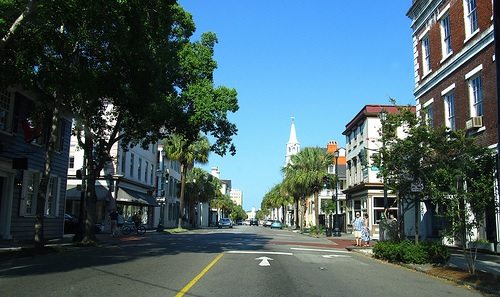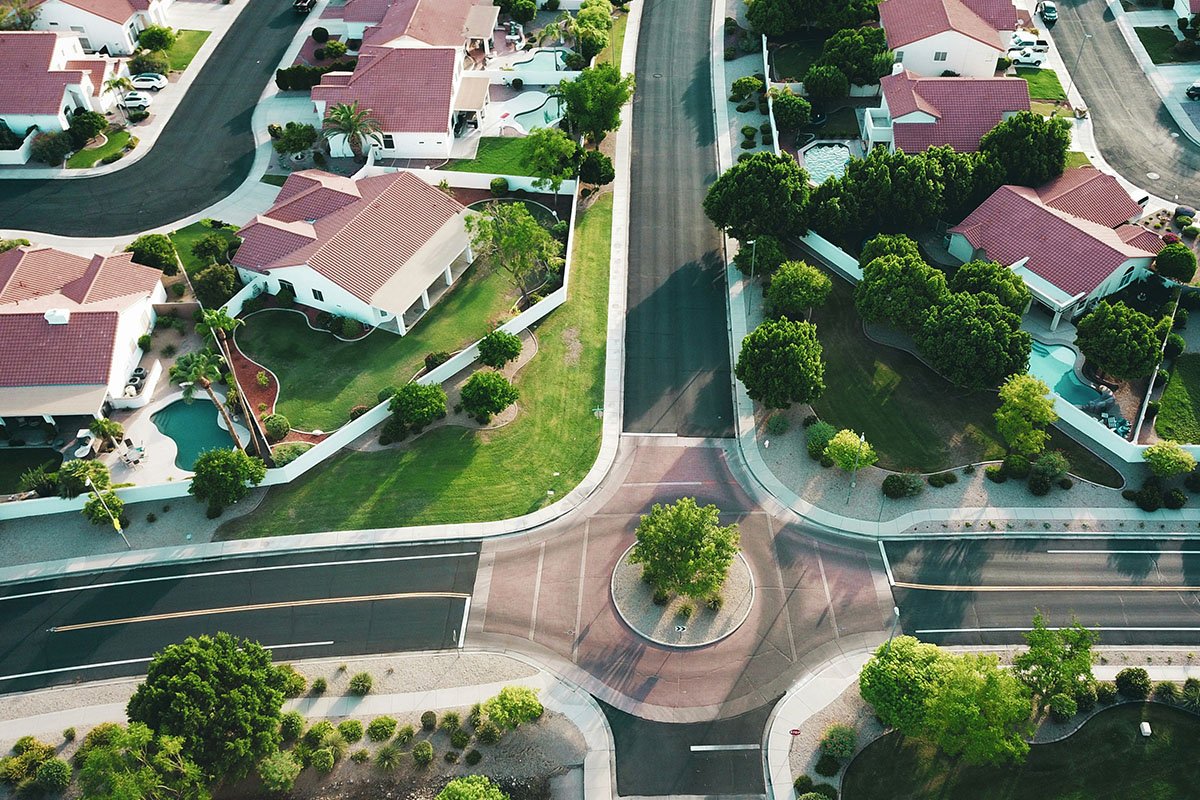
Among the many things to think about regarding the horrifying murder of nine people at the Emanuel African Methodist Episcopal church in Charleston, South Carolina, by a 21-year-old white man, a few things come to mind that might not be covered or, rather, commented on by the mainstream press.
Racial dialogue
Some of us with experience as municipal government office-holders cannot imagine what we would do if we were in the shoes of Charleston’s longtime mayor, Joe Riley, a forward-thinking progressive countering the conservative political attitudes of so much of the South. This is the second, not first, racial incident that has occurred in the Charleston area recently: In April, a black man, Walter Scott, was killed by a white North Charleston police officer during a traffic stop. (Last month, a grand jury indicted the policeman, Michael Slager, for murder.)
Those of us who met him when he was still a very young mayor—he was elected back in 1975—remember Joe Riley as someone of commitment to racial justice. At the time of his election and thereafter, Charleston, one of the nation’s most beautiful cities, was in the midst of a downtown gentrification dynamic that threatened the neighborhoods and livelihoods of the community’s low-income black population. He initiated efforts to create and preserve affordable housing and worked to build bridges between blacks and whites in the city, including the appointment of a black police chief and, fifteen years ago, leading a march to Columbia to remove the confederate flag from the state capitol.
Preparing to leave office next year, what does a mayor like Joe Riley do in the wake of the Charleston AME church shootings when his purpose for becoming mayor was, as he told Robert Siegel of National Public Radio, “mainly to help build a bridge between the African-American and the white community”? Riley is no recent convert to the issue of racial justice. He is a product of the 1970s when Charleston, the birthplace of the Civil War, was a focal point for social and racial turmoil. He is well positioned to initiate what ought to occur in many communities in the United States: a citywide dialogue on race.
As he was reloading, the shooter reportedly told one of the AME worshipers, “You rape our women and you’re taking over our country. You have to go.” (Elsewhere, it was reported that he said, “I have to do what I have to do.”) Making his shooting more than simply a hate crime, but an act of terrorism, the shooter told a victim that he would let her live so that she could tell other people what happened inside the church, the desired effect evident in this comment from an onlooker outside the AME church: “This is going to put a lot of concern to every black church when guys have to worry about getting shot in the church.”
What makes people like the shooter hate so much? Who is putting these thoughts into the heads of the likes of that young man who wantonly killed people participating in a Bible study group? It isn’t just the issue of the implicit racism that undergirds racial inequity in this country. In the case of the Charleston church killings, this was explicit, out-of-control, vicious racism that the shooter owned and embraced—and acted on with deadly consequence.
While there are a number of nonprofit groups around the country marketing and promoting competing versions of how to conduct community dialogues on race, sometimes with more marketing and promotion than evidence, there are resources that Charleston could turn to for structuring the dialogue. In 2003, the Community Relations Service of the U.S. Department of Justice issued a sober and logical design for community dialogues on race. Another simple, straightforward racial dialogue framework comes from the Clinton administration’s “One America” program. While we cannot attest to their achievements or progress, a number of such community dialogues have emerged in Charlotte, North Carolina, Worcester, Massachusetts, and Evanston, Illinois, just to name a few. Hopefully, the intent of these dialogues is public action against the unfathomable racial animus that has sadly continued in this country despite talk of the U.S. becoming a “post-racial society.”
If effort is put toward a public call to action against racism in both its covert and overt dimensions, that’s a potential role for a bridge-building leader like Joe Riley. Solving the problem reflected in the AME church shooting isn’t the enactment at the city level of some particular new program that somehow hasn’t been tried. It is to aim at revealing and changing community culture through honest dialogue and, as appropriate, by calling out the hatemongers. It isn’t a matter of Joe Riley’s being white or black. It is the challenge of being a mayor in places like Ferguson, Baltimore, New York City, Cleveland, and now Charleston, where a mayor has to do something more than make statements of concern and sympathy. To be elected a mayor in the U.S. today, initiating community-wide racial dialogues that take on the hatemongers is part of the job description, or at least it should be.
Sign up for our free newsletters
Subscribe to NPQ's newsletters to have our top stories delivered directly to your inbox.
By signing up, you agree to our privacy policy and terms of use, and to receive messages from NPQ and our partners.
Gun Control
In addition to racial dialogue, the Charleston area, site of both the killing of a black man after a traffic stop for a broken taillight and the murder of nine black churchgoers, should be the impetus for a reinvigorated discussion of gun control.
In the wake of the shooting, Mayor Riley said, “I personally believe there are far too many guns out there, and access to guns, it’s far too easy. Our society has not been able to deal with that yet.” Riley was an early and enthusiastic backer of the Mayors Against Illegal Guns coalition initiated by Mayors Michael Bloomberg and the late Thomas Menino in 2006, but he remains only one of five South Carolina mayors listed as members among the over 1,000 cities that have signed on to the gun control coalition.
Is the Charleston shooting an inflection point for revisiting the issue of guns? Undoubtedly. The nation frittered away the opportunity for a comprehensive rethinking of gun legislation that arose after the Sandy Hook elementary school killings, but there is much in the Charleston incident that should revive a debate about the nation’s increasingly ludicrous laissez faire approach to armed citizens like the young man at the church. The shooter in this case was a known meth user who had been arrested twice this year on drug possession and trespassing. His Facebook shows him wearing jackets bearing the flags or emblems of the Confederacy, the apartheid regime of South Africa, and the white government of Rhodesia. Nevertheless, this person was given a .45-caliber gun by his father as a 21st birthday present this past April.
Despite revealing the news about the handgun birthday present, the shooter’s uncle said in a telephone interview, “Nobody in my family had seen anything like this coming.” That is hard, no, impossible to believe. A kid who admired apartheid South Africa and the white racist government of post-colonial Rhodesia, you give him a .45 for his birthday and suggest that his rampage was a surprise? No way. But under current laws, what would have prevented the dad from giving the son the gun, just like the mother of the Sandy Hook killer provided his arsenal? Tell the nine dead churchgoers that their lives are the price we pay for a faulty interpretation of the Second Amendment.
As he and other leaders have done in the wake of other killings, President Obama denounced the Charleston killings as “senseless” and expressed his personal “sorrow.” That’s fine, but what is needed is concerted White House action on gun control, with more than milquetoast standards and with the vigor that the president is clearly demonstrating on Capitol Hill lately around fast-track trade authority. That message goes double for the nonprofit sector, which could have been rallied to the gun control issue by the White House last time around if its nonprofit-focused staff at the Office of Social Innovation and Civic Engagement had made gun control the priority it should have been.
The Emanuel African Methodist Episcopal Church should be a rallying point for change. The church that the shooter invaded and defiled by massacring worshipers was founded in 1818 by Denmark Vesey, a former slave who led a slave uprising in Charleston in 1822. By killing nine people engaged in Bible study at the church, the young killer picked an emblem of this nation’s racial history that, as much as any incident in the spate of racial events of the past couple of years, ought to spark a national reconsideration of fundamental assumptions in this country about race relations and societal violence. For nonprofits, this isn’t a time to sit on the sidelines.












